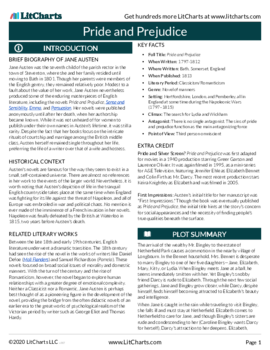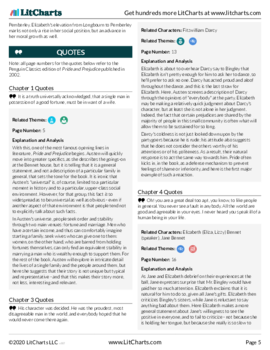- All's Well That Ends Well
- Antony and Cleopatra
- As You Like It
- The Comedy of Errors
- Coriolanus
- Cymbeline
- Hamlet
- Henry IV, Part 1
- Henry IV, Part 2
- Henry V
- Henry VI, Part 1
- Henry VI, Part 2
- Henry VI, Part 3
- Henry VIII
- Julius Caesar
- King John
- King Lear
- Love's Labor's Lost
- A Lover's Complaint
- Macbeth
- Measure for Measure
- The Merchant of Venice
- The Merry Wives of Windsor
- A Midsummer Night's Dream
- Much Ado About Nothing
- Othello
- Pericles
- The Rape of Lucrece
- Richard II
- Richard III
- Romeo and Juliet
- Shakespeare's Sonnets
- The Taming of the Shrew
- The Tempest
- Timon of Athens
- Titus Andronicus
- Troilus and Cressida
- Twelfth Night
- The Two Gentlemen of Verona
- Venus and Adonis
- The Winter's Tale
plus so much more...
-
Lines 1-6
"The Complaints of Poverty" is Nicholas James's long tirade against the sufferings of the poor and the selfish cruelty of the upper classes in 18th-century Britain. Supposedly spoken by a chorus of the poor themselves, the poem ends up sounding a lot more like an outside observer's outraged remarks on what poverty does to people.
The poem's form—elegant heroic couplets—suggests that this is a poem meant to make a political point. Heroic couplets are paired rhyming lines of iambic pentameter—that is, lines of five iambs, metrical feet with a da-DUM rhythm. Here's how that sounds in the first two lines of this excerpt:
When win- | ter's rage | upon | the cot- | tage falls,
And the | wind rush- | es through | the gap- | ing walls,Notice that the second line here plays with its rhythms, pushing two stresses together into a spondee (a foot with a strong DUM-DUM rhythm) to capture the force of that awful wind against those inadequate walls.
Heroic couplets were a popular form among 18th-century poets, admired both for their elegance and their flexibility. In choosing this form, James seems to be directing this poem to an educated audience that knows something about stylish poetry—an audience, the poem will suggest, that could also probably be doing a little more to help out its less fortunate neighbors.
The first lines of this excerpt describe day-to-day life for a poor family in 18th-century Britain. When "winter's rage" comes along, the speaker says (in a moment of personification that suggests the very seasons are cruel to the poor), an already difficult situation gets even worse. Besides cold winds that rush through the "gaping," cracked-open walls of the poor's cottages, both food and fuel become scarce. Living on a paltry "ninepence," families can't afford to feed their children.
The speaker evokes this predicament through spare, straightforward, indignant imagery:
With hunger pinched and cold, the children cry;
The gathered sticks but little warmth afford,
And half-supplied the platter meets the board.The image of children "pinched" by hunger and cold suggests both that the children look pinched (in the sense of "scrawny and starved") and that they feel as if they're being pinched by their hunger pangs and the cruel, nippy winds. The "half-supplied," scanty plate their parents can provide them isn't nearly enough to fill their bellies or keep the cold from their little bones.
Powerful anaphora frames these lines as well:
When winter's rage upon the cottage falls,
And the wind rushes through the gaping walls,
When ninepence must their daily wants supply,
With hunger pinched and cold, the children cry;The repeated "when" here feels grim, suggesting that these sufferings come around every winter, horribly predictable.
Already, readers get a flavor of Nicholas James's argumentative style. In spite of its fluent and orderly form, this poem won't sound elevated or intricate. Rather, it will paint a straightforward picture of how the 18th-century poor lived and died—and dare its better-off readers to look away.

|
PDF downloads of all 3061 of our lit guides, poetry guides, Shakescleare translations, and literary terms.
PDF downloads of all 1916 LitCharts literature guides, and of every new one we publish.
Learn more
|

|
Explanations for every quote we cover.
Detailed quotes explanations (and citation info) for every important quote on the site.
Learn more
|

|
Instant PDF downloads of 136 literary devices and terms.
Definitions and examples for 136 literary devices and terms. Instant PDF downloads.
Learn more
|

|
Compare and contrast related themes.
Compare and contrast Related Themes across different books.
Learn more
|

|
Teacher Editions for all 1916 titles we cover.
LitCharts Teacher Editions for every title we cover.
Learn more
|

|
PDFs of modern translations of every Shakespeare play and poem.
PDFs of modern translations of every Shakespeare play and poem.
Learn more
|

|
Advanced search across our collection.
Advanced Search. Find themes, quotes, symbols, and characters across our collection.
Learn more
|

|
Line-by-line explanations, plus analysis of poetic devices for lyric poems we cover.
Line-by-line explanations, plus analysis of poetic devices for every lyric poem we cover.
Learn more
|


For every lyric poem we cover.



Literature Guide PDFs
LitCharts PDFs for every book you'll read this year.



Quotes Explanations
For all 42,382 quotes we cover.





Teacher Editions
Time saved for teachers.
For every book we cover.
Common Core-aligned



PDFs of modern translations of every one of Shakespeare's 37 plays, 154 sonnets, and 3 longer poems.


Plus a quick-reference PDF with concise definitions of all 136 terms in one place.






















